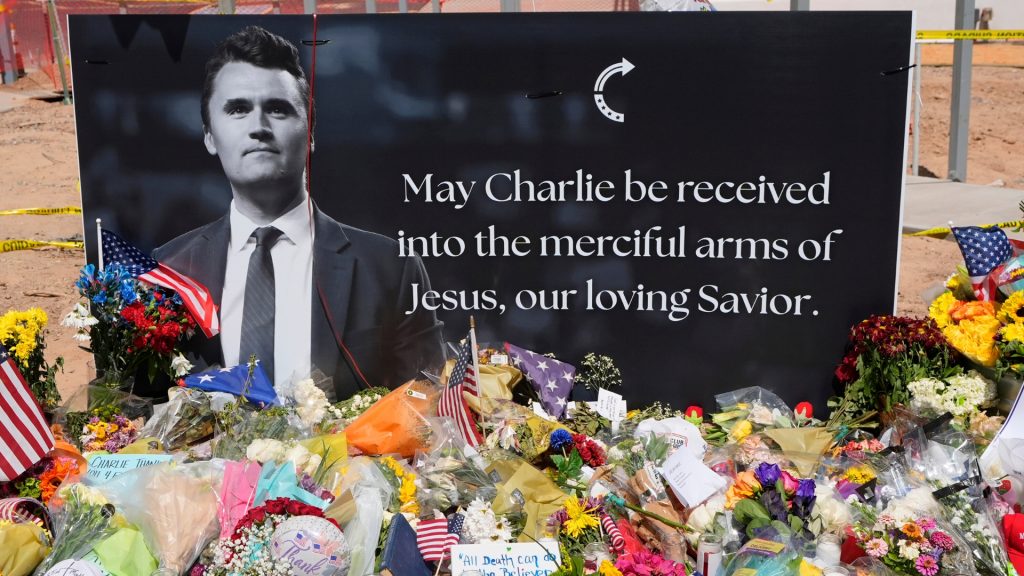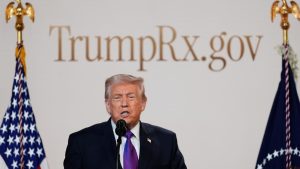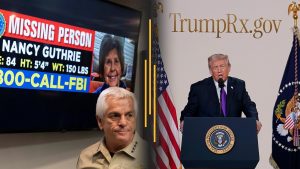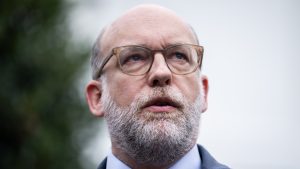Charlie Kirk’s killing is latest escalation in violence across the political spectrum

Political violence has intensified across the nation within the past 15 years as extremists have plotted or carried out the assassinations of several lawmakers and their families. Attacks have targeted governors, state and federal politicians, influencers and the president of the nation in what several researchers have said is likely due to a rise in intensely polarizing speech, launching the United States into a new era of its often-violent history.
Wednesday’s assassination of 31-year-old Charlie Kirk, a conservative figure who founded Turning Point USA and was close to President Donald Trump, is just the latest incident in a series of violent episodes that political figures have experienced since 2011. Researchers said the violence is at levels not seen since the 1960s and 1970s with the assassinations of President John F. Kennedy, Malcolm X, the Rev. Martin Luther King Jr. and Robert F. Kennedy Sr.
The Brookings Institution reviewed political violence after a Minnesota lawmaker and her husband were killed in their home in June. Researchers Jonathan Katz, Renée Rippberger and Eric Urby wrote that not addressing the rise can negatively impact American democracy.
“The impacts of political violence on a democratic society are far-reaching,” they wrote. “In addition to the devastating effects on victims, their families, and their communities, political violence can also stifle critical forms of public engagement — such as voting, community organizing, and running for office — and chill free expression.”
Attacks target politicians, supporters
An unprecedented escalation of violence for political views has affected and been perpetuated by people on both extremes of the spectrum. That included the 2011 shooting of former United States Rep. Gabby Giffords, an Arizona Democrat; the 2017 shooting at a congressional baseball practice that wounded Rep. Steve Scalise, R-La., and several others; the Jan. 6, 2021, insurrection at the U.S. Capitol; and two assassination attempts last year on Trump.
The attempts and assassinations have targeted lawmakers and influencers alike, while also harming the general public, as was seen in the insurrection and other events. Reasons behind the attacks varied.
Several anti-government extremists were arrested in 2020 for their plot to kill Democratic Michigan Gov. Gretchen Whitmer and start a civil war, according to Michigan Attorney General Dana Nessel’s office. The case ended in the conviction on terrorism charges of several of the men, who wanted to incite panic and “societal collapse,” the attorney general’s office said.
Jared Lee Loughner, 22, wounded Giffords during a constituent meeting outside a Tucson, Arizona, supermarket because he felt Giffords had snubbed him at a prior event, according to U.S. Secret Service archives. In that same incident, Loughner shot 12 other people and killed six, including a federal judge and a 9-year-old girl. Loughner admitted to the shooting and is serving seven consecutive life sentences, plus an additional 140 years.
“Political violence at its core is a rejection of democracy,” Lilliana Mason, a political science professor at Johns Hopkins University, said in June. “If a person has used violence to achieve a political goal, then they’ve given up on the democratic process. Instead, they’re trying to use force to affect government, or politics, or whatever it is that they’re upset about.”
Non-fatal forms of political violence escalated to affect the most powerful person in the country: President Donald Trump. A jury trial started Monday for Ryan Routh, who’s accused of attempting to assassinate the president at his West Palm Beach golf club on Sept. 15, 2024, weeks before the Republican won a second term in the White House. Trump was not injured in the attempt as a Secret Service agent fired their gun at the gunman.
That attempt followed the July 13 shooting in Butler, Penn., during a Trump campaign rally. Thomas Crooks shot at Trump, hitting the president’s ear, and killing a man in the audience. Counter snipers shot and killed Crooks, 20, at the scene.
Just in February, the U.S. Capitol Police said threats and concerning statements against members of Congress, their staffs and their families have continued in large numbers after reaching an all-time high of 9,625 in 2021. The agency logged 9,474 cases in 2024, up from 8,008 in 2023.
“People continue to have a false sense of anonymity on social media, which has resulted in more investigations during the past several years,” according to the department. “Decreasing violent political rhetoric is one of the best ways to decrease the number of threats across the country.”
But that rhetoric hasn’t decreased. Instead, it intensified in June when Vance Boelter, 57, allegedly assassinated Minnesota state Rep. Melissa Hortman and her husband Mark. Boelter is also charged with shooting and attempting to do the same to state Sen. John Hoffman and his wife, Yvette. Both Hortman and Hoffman were Democrats.
A poll from the Foundation for Individual Rights and Expression revealed that more college students are supporting violence to shut down a speaker than in previous years. About 35% of the Republican respondents and 30% of the Democratic ones favored using violence. The organization didn’t detail what the previous numbers were.
Who’s to stop political violence?
Kirk’s assassination reignited a heated debate online over who bears responsibility for eliminating and inciting political violence.
Immediately following the shooting, Rep. Nancy Mace, R-S.C., told reporters that Democrats’ messaging led to the incident and wrote on X that party members must take ownership of their words. She declined to answer a reporter’s question about whether Republicans were responsible for the assassination in Minnesota. She said her concern was for Kirk, whose death had not yet been reported.
An hour before the shooting, Rep. Chris Murphy, D-Conn., posted a short video on his YouTube channel in which he said people must be willing to do whatever’s necessary to save the country, as there’s a “war.” After the shooting, a shouting match erupted on the House floor after a moment of silence was held for Kirk, according to a C-SPAN recording. Lawmakers shouted at each other about prayers and gun control.
Mason, the Johns Hopkins professor, wrote that blame is on elected officials and political media that amplify and spread violent, dehumanizing rhetoric. A more responsible leadership could erode it from American society, but Mason said the media and politicians benefit from getting more attention when they spread those messages.
“To counteract this, we can reaffirm that political violence is bad in our social spaces and in our communities,” she wrote. “We can hold people to those norms and discourage them when they advocate for violence.”
The post Charlie Kirk’s killing is latest escalation in violence across the political spectrum appeared first on Straight Arrow News.





